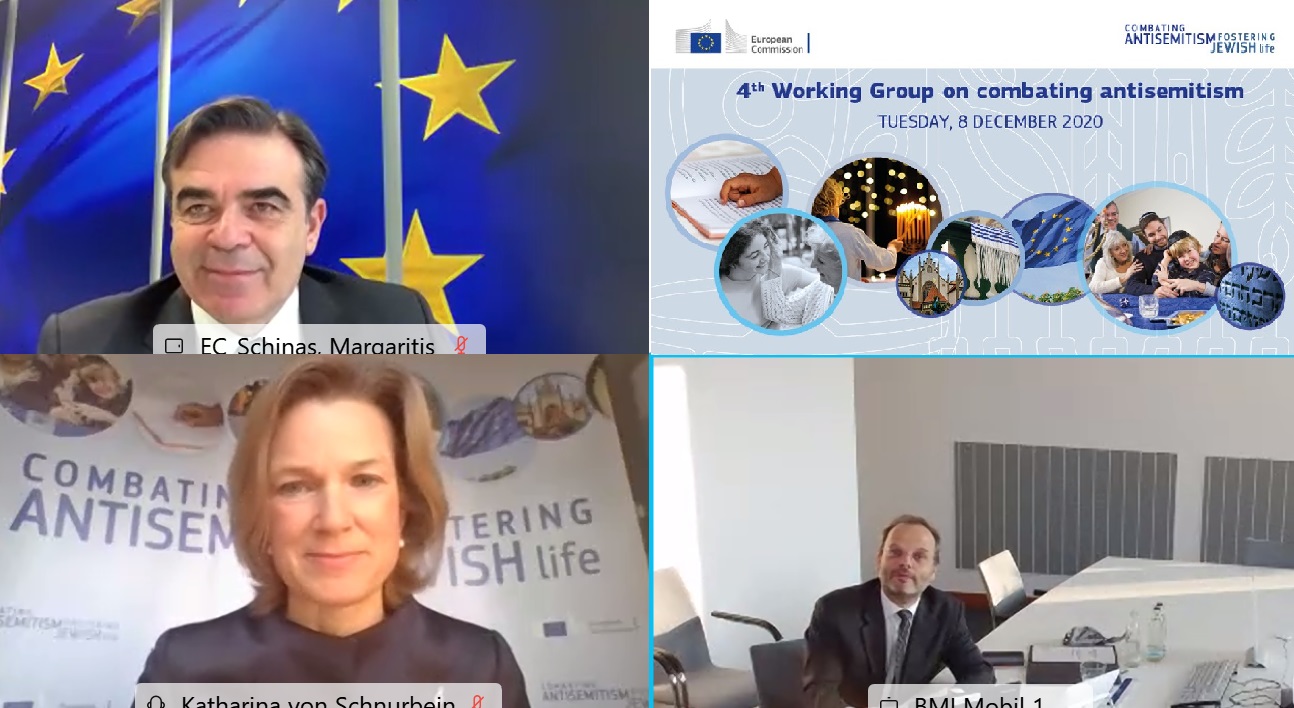4th Meeting of the Working Group on Combating Antisemitism

Related topics
Combating antisemitismdate: 08/12/2020
permalink: Main URL
The 4th meeting of the Working Group on combating antisemitism focused on the development of national strategies against antisemitism, the practical use of the International Holocaust Remembrance Alliance (IHRA) definition of antisemitism, and fighting against antisemitic prejudices as part of civic orientation measures based on the European Commission Action Plan on Integration and Inclusion.
Vice-President for promoting our European Way of life, Margaritis Schinas, opened the meeting and reiterated Europe’s determination to win the fight against antisemitism. He thanked the German EU Presidency for negotiating the Council Declaration on mainstreaming the fight against antisemitism across policies, adopted on 2 December. He also informed about a comprehensive EU Strategy on antisemitism to be adopted by the Commission in 2021.
In a first panel discussion, representatives of Member States and of Jewish communities, in line with the recommendations of the 2018 Council Declaration on the fight against antisemitism to adopt and implement a holistic strategy to prevent and fight all forms of antisemitism, explored good practices on developing strategies and looked into how to specifically mainstream antisemitism in different policy fields, from education and culture to technology, marketing, employment, security etc.
A session was dedicated to the presentation of a handbook of good practices for the application of the IHRA working definition of antisemitism. This handbook was commissioned by the European Commission and the IHRA and will be published by the end of 2020.
In the 2018 Council Declaration, Member States agreed, “to introduce training about all forms of intolerance, racism and hate crime, in particular antisemitic prejudices and hate crime, into the curricula of integration courses”. Hence, during this session, participants were informed about the EU integration policies and experts and Member States representatives shared on existing projects and initiatives that aim to foster newcomers' inclusion in society and address possible antisemitic prejudices and further discussed new ways to achieve this goal.
Vice-President for Values and Transparency Věra Jourová closed the event, pointing in particular to the urgent need in addressing COVID-related disinformation and antisemitic conspiracy ideology as well as the usefulness of the recent European Commission Democracy Action Plan in that regard.
- Speech of Vice-President Margaritis Schinas
- Speech of Vice-President Věra Jourová
- Background document
- Agenda
